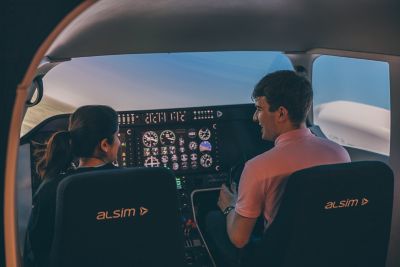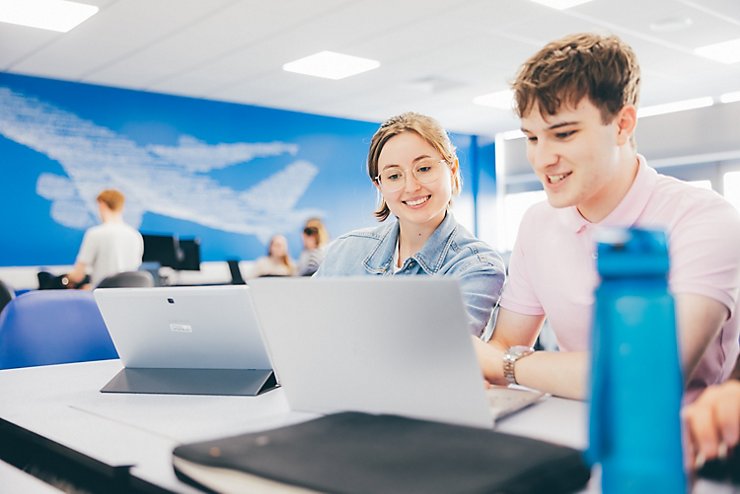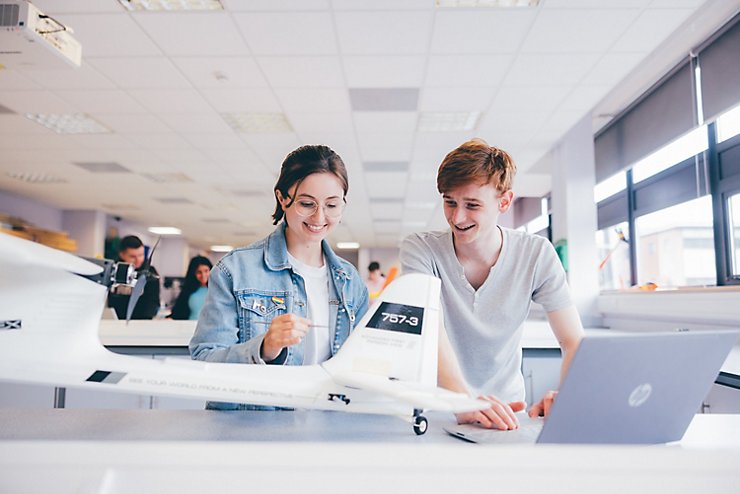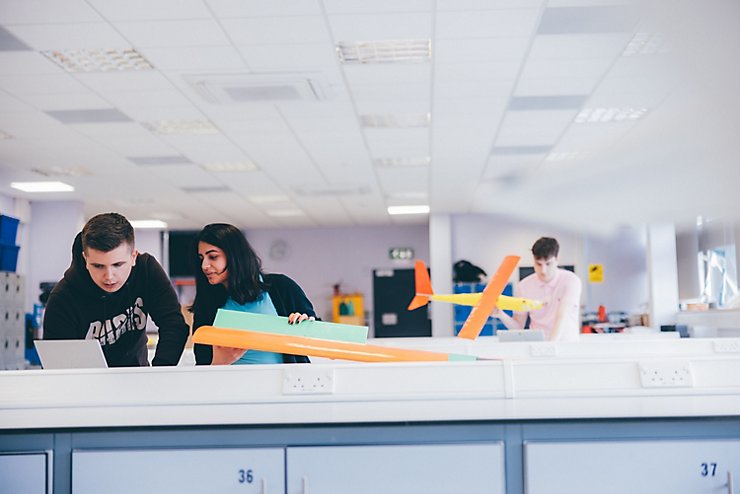* For full details including fees for part-time students and reduced fees during your time studying abroad or on placement (where applicable), see our fees page.
If you are a student from the EU, EEA or Switzerland, you may be asked to complete a fee status questionnaire and your answers will be assessed using guidance issued by the UK Council for International Student Affairs (UKCISA).
Additional costs
All students will need at least one device to approve security access requests via Multi-Factor Authentication (MFA). We also recommend students have a suitable laptop to work both on and off-campus. For more information, please check the equipment advice.
As a student on this course, you should factor some additional costs into your budget, alongside your tuition fees and living expenses:
- Books - You can access all the essential course books through our libraries and there is usually no need to purchase your own copies. Should you wish to do so, these vary in cost but would be around £30-£80 per book depending upon whether you buy new or pre-owned, paper or electronic.
- Printing – There is little need to print as coursework is submitted online and teaching materials provided electronically. If you do wish to print, black and white printing costs 4p per side.
- Trips – The department covers the travel cost of compulsory field trips.
- PPE – This course does not require PPE items to be bought. Workshop PPE is provided to you in the first year for the duration of your course. Any other essential requirements are met with no cost involved.
- Industrial year - Any costs associated with your industrial placement year, including travel or accommodation will need to be factored in as they are not covered by your fees.
- Summer work placement - If you do a work placement, any costs associated with travel or accommodation will need to be factored in as they are not covered by your fees.
- Design materials – Materials for use in design projects are supplied.
- PC device – Although there are PCs available for your use on campus, you will need to purchase your own device. Read more about our recommended specifications.
- Calculator - While the calculator you used for your former study is usually sufficient some students will choose to purchase a new calculator which will cost around £10.
Please note that these figures are approximate and subject to change.
There may also be costs issued by the university for replacement student ID cards, additional transcripts or certification letters, reassessments and library fines.
Scholarships and bursaries
The University offers a wide range of bursaries and scholarships. These funds can provide you with an additional source of non-repayable financial help:
Engineering students may be eligible for faculty-specific or industry scholarships.
International students
We offer a range of international undergraduate scholarships for high-achieving international scholars who can put their Nottingham degree to great use in their careers.
Tuition fees 2026/27 (UK undergraduate students)
This is the UK undergraduate tuition fee for the academic year 25/26. It may increase for the academic year 26/27 and we will update our information once we have received confirmation of the fee from the UK Government.
*For full details including fees for part-time students and reduced fees during your time studying abroad or on placement (where applicable), see our fees page.
If you are a student from the EU, EEA or Switzerland, you may be asked to complete a fee status questionnaire and your answers will be assessed using guidance issued by the UK Council for International Student Affairs (UKCISA).
Additional costs
All students will need at least one device to approve security access requests via Multi-Factor Authentication (MFA). We also recommend students have a suitable laptop to work both on and off-campus. For more information, please check the equipment advice.
As a student on this course, you should factor some additional costs into your budget, alongside your tuition fees and living expenses:
- Books - You can access all the essential course books through our libraries and there is usually no need to purchase your own copies. Should you wish to do so, these vary in cost but would be around £30-£80 per book depending upon whether you buy new or pre-owned, paper or electronic.
- Printing – There is little need to print as coursework is submitted online and teaching materials provided electronically. If you do wish to print, black and white printing costs 4p per side.
- Trips – The department covers the travel cost of compulsory field trips.
- PPE – This course does not require PPE items to be bought. Workshop PPE is provided to you in the first year for the duration of your course. Any other essential requirements are met with no cost involved.
- Industrial year - Any costs associated with your industrial placement year, including travel or accommodation will need to be factored in as they are not covered by your fees.
- Summer work placement - If you do a work placement, any costs associated with travel or accommodation will need to be factored in as they are not covered by your fees.
- Design materials – Materials for use in design projects are supplied.
- PC device – Although there are PCs available for your use on campus, you will need to purchase your own device. Read more about our recommended specifications.
- Calculator - While the calculator you used for your former study is usually sufficient some students will choose to purchase a new calculator which will cost around £10.
Please note that these figures are approximate and subject to change.
There may also be costs issued by the university for replacement student ID cards, additional transcripts or certification letters, reassessments and library fines.
Scholarships and bursaries
The University offers a wide range of bursaries and scholarships. These funds can provide you with an additional source of non-repayable financial help:
Engineering students may be eligible for faculty-specific or industry scholarships.
Home students*
Over one third of our UK students receive our means-tested core bursary, worth up to £1,000 a year. Full details can be found on our financial support pages.
* A 'home' student is one who meets certain UK residence criteria. These are the same criteria as apply to eligibility for home funding from Student Finance.










